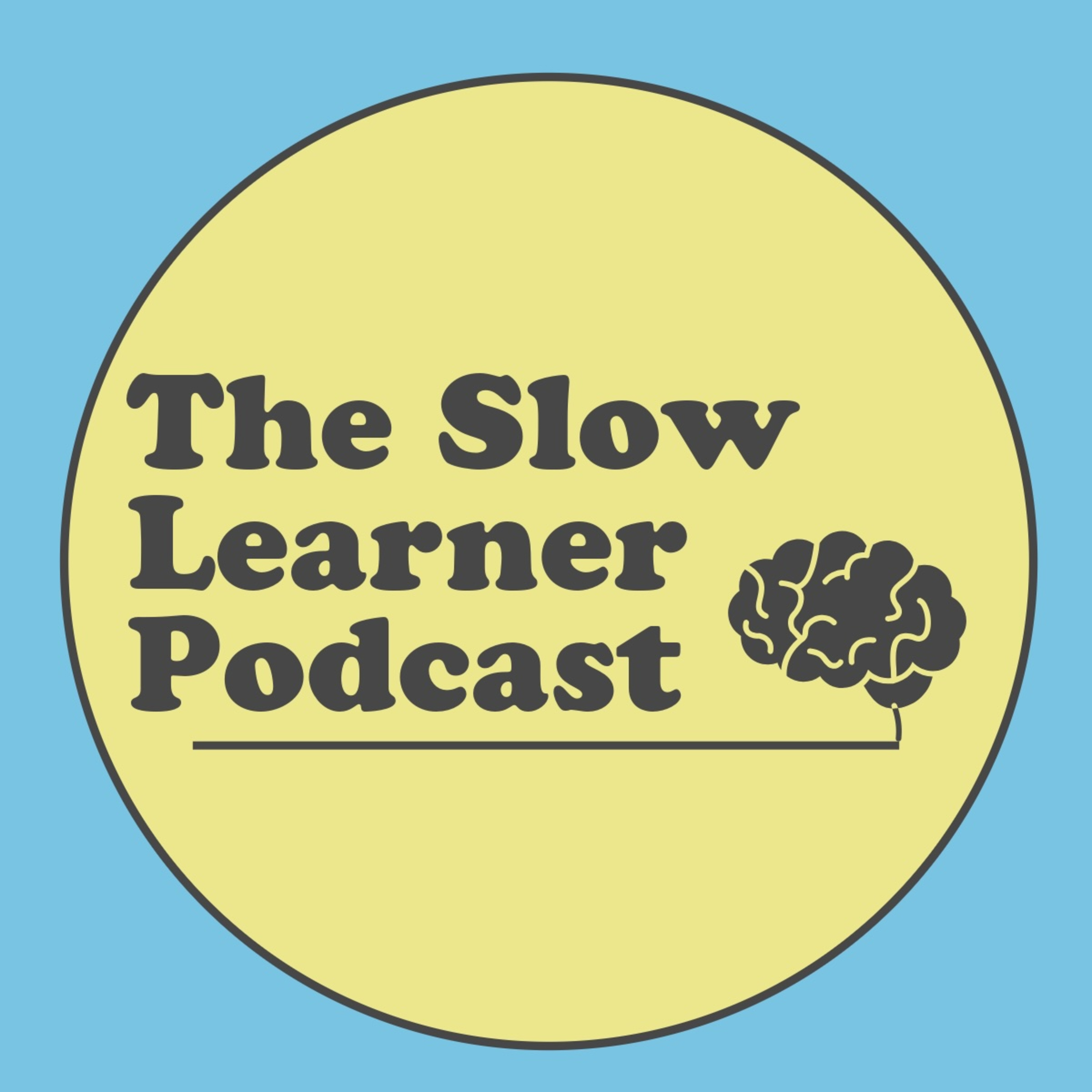The Slow Learner Podcast with Pete Johansson

The Slow Learner Podcast with Pete Johansson
Podcast Description
The Slow Learner is where comedy meets neuroscience. Hosted by comedian Pete Johansson and neuroscientist Dr. Paul Whissell, this podcast dives into the fascinating ways humour shapes our minds, relationships, and resilience. With guests like Brent Butt, Darcy Michael, and Des Bishop, each episode explores how comedy taps into cognitive science — revealing why laughter isn’t just fun, but vital.
Podcast Insights
Content Themes
This podcast focuses on the intersection of humor and cognitive science, exploring topics such as ADHD, emotional resilience, and personal growth. For instance, Episode 02 with Darcy Michael dives into comedy's role in understanding neurodivergence, while Episode 01 featuring Brent Butt examines the relationship between comedy and intelligence. Each episode illustrates how humor serves as a tool for healing, self-awareness, and building connections.

The Slow Learner is where comedy meets neuroscience. Hosted by comedian Pete Johansson and neuroscientist Dr. Paul Whissell, this podcast dives into the fascinating ways humour shapes our minds, relationships, and resilience. With guests like Brent Butt, Darcy Michael, and Des Bishop, each episode explores how comedy taps into cognitive science — revealing why laughter isn’t just fun, but vital.
In this unforgettable episode, comedian and actor Darrin Rose (Mr.D, MatchGame, LetterKenny, Home Sweet Home & more) joins Pete Johansson and neuroscientist Dr. Paul Whissell to share a deeply personal and shockingly funny story: getting sucker punched in Halifax while waiting for poutine. What follows is a brutal, hilarious, and at times heartbreaking tale of injury, botched medical care, police failure — and eventually, healing through comedy.
Darrin’s story becomes a springboard for a wide-ranging conversation on:
The ethics and art of using trauma on stage
Anger and personality change after head injuries
Why our brains forget traumatic events (and sometimes that’s a good thing)
How different parts of the brain — like the orbital frontal cortex — influence impulse control and behaviour
The cultural psychology of comedy: Canadians, tall poppy syndrome, embellishment, and truth
Hassan Minhaj, The Daily Show fallout, and the risks of narrative comedy
Phineas Gage, memory consolidation, and brain plasticity
Laughter, connection, and how jokes can be healing
This episode is raw, real, and resonant — a powerful example of why storytelling matters and how humour helps us make sense of the senseless.
Whether you’re a comedy fan, psychology nerd, or just want to hear about facial reconstruction and poutine-based assaults, Episode 7 delivers.
Chapters
00:00 The Aftermath of Violence
01:55 Healthcare System and Recovery Challenges
09:13 The Impact of Brain Injuries on Personality
15:10 Memory and Trauma: Understanding Amnesia
21:06 Navigating Healthcare: A Personal Journey
21:32 The Art of Storytelling in Comedy
26:32 Vulnerability and Connection on Stage
29:52 Navigating Dark Humor and Trauma
37:05 Personal Growth and Self-Awareness
40:42 The Impact of Brain Injuries on Personality
47:17 Closing Thoughts and Future Directions
Darrin Rose’s Links: – Also, Darrin will be doing a cross Canada Tour this fall!
Instagram: @mrdarrinrose
Twitter: @darrinrose
Tiktok: @darrinrosecomedy
The Slow Learner & Pete Johanssons Links:
https://links.theslowlearner.com/
Like, Share, Contribute to the Dialogue
show email: [email protected]

Disclaimer
This podcast’s information is provided for general reference and was obtained from publicly accessible sources. The Podcast Collaborative neither produces nor verifies the content, accuracy, or suitability of this podcast. Views and opinions belong solely to the podcast creators and guests.
For a complete disclaimer, please see our Full Disclaimer on the archive page. The Podcast Collaborative bears no responsibility for the podcast’s themes, language, or overall content. Listener discretion is advised. Read our Terms of Use and Privacy Policy for more details.